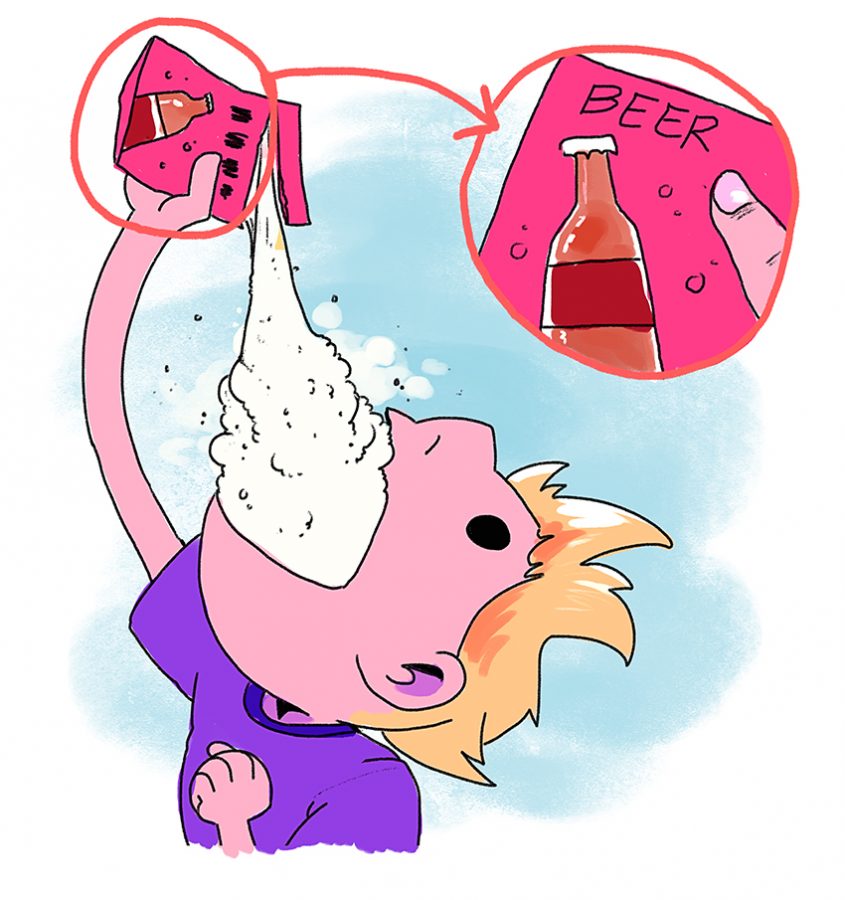Several days ago, the House committee began the process of regulating powdered alcohol. Although the substance has not yet made it to Texas markets, the committee unanimously approved two bills that would define powdered alcohol as an alcoholic beverage and limit the size of a packet to 14 grams. Though many support outright prohibition, Texas should pass the two bills to regulate, rather than ban, powdered alcohol.
Powdered alcohol is a dangerous substance, which is why many people advocate banning it outright. The packets would especially pose a risk to youth.
The biggest concern is that the small packets are easy to hide and transport. Seventeen year-old Andrea Marquez made this exact point ten days ago during a House committee meeting. She filled her makeup bag with Kool-Aid packets (which are roughly the same volume as a packet of powdered alcohol) to demonstrate how easily she could conceal 48 shots-worth of the substance.
Anyone who does not fully grasp how concentrated the substance is could easily overdose. Nicole Holt, CEO of Texans Standing Tall, is concerned that powdered alcohol “take(s) a product that is already dangerous and (makes) it even easier for kids to consume at larger quantities and a larger rate.” People searching for a quicker high than what liquid alcohol induces may try to eat or snort the powder, which could cause throat or nasal damage.
However, while all of these arguments reinforce the idea that powdered alcohol is potentially harmful, they do not definitively lead to the conclusion that the state should ban the dangerous substance.
First, if powdered alcohol is really more convenient for minors, they will still seek it out even if it is illegal. The characteristics that make powdered alcohol so attractive in the first place would also provide incentives for suppliers to enter the black market.
Even though prohibition would impose an additional obstacle — minors would have a harder time acquiring powdered alcohol from adults — similar cases have shown that making a substance illegal does not get rid of it.
Banning powdered alcohol would likely not eliminate it from Texas markets. Instead, the drug could follow the same path as novel psychoactive substances. When the government banned “spice” (synthetic marijuana), prohibition drove the drug to underground markets.
More common drugs — heroin, cocaine and marijuana — exhibit a similar pattern. Between 1990 and 2007, the price of these three drugs decreased by about 80 percent, while the purity of the drugs and the overall number of seizures increased. This suggests prohibiting and criminalizing addictive substances do not deter people from buying or supplying them.
The alternative to banning, regulation, must cover more than price and quantity. Lawmakers should also consider regulating how suppliers can advertise powdered alcohol. As the bills stand, brands would have to say that the powder should not be consumed in powdered form. But since adolescents are particularly susceptible to advertisements for alcohol, regulations on advertising powdered alcohol should possibly mirror regulations on advertising cigarettes.
We cannot lose sight of what is actually in question. The argument is not whether powdered alcohol is dangerous, but rather how the state can best prevent people from abusing it. Of course powdered alcohol has potentially harmful effects. Of course adolescents should not have access to it, but regulation, not prohibition, is the state’s best chance of protecting adolescents from abusing the drug.
Marabella is a business honors, Plan II and Spanish freshman from Austin. She is a columnist.





















